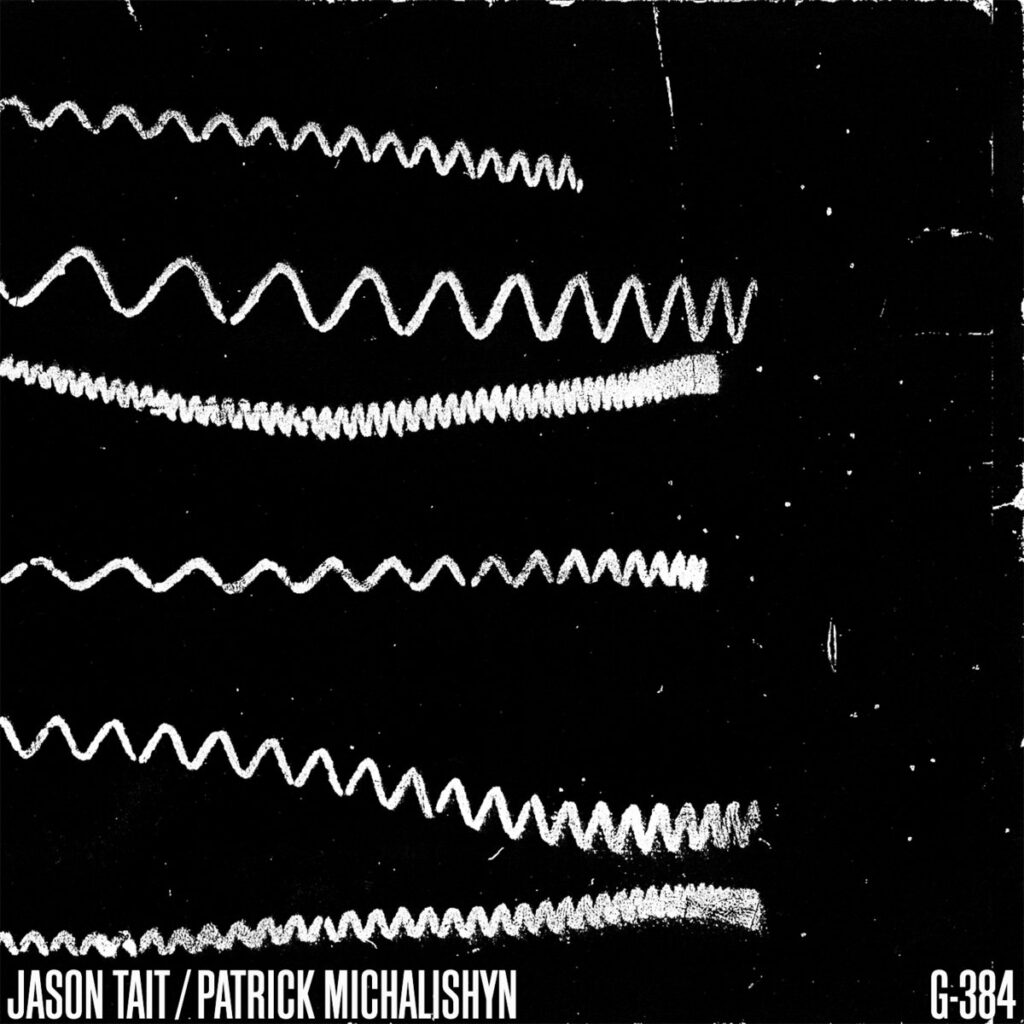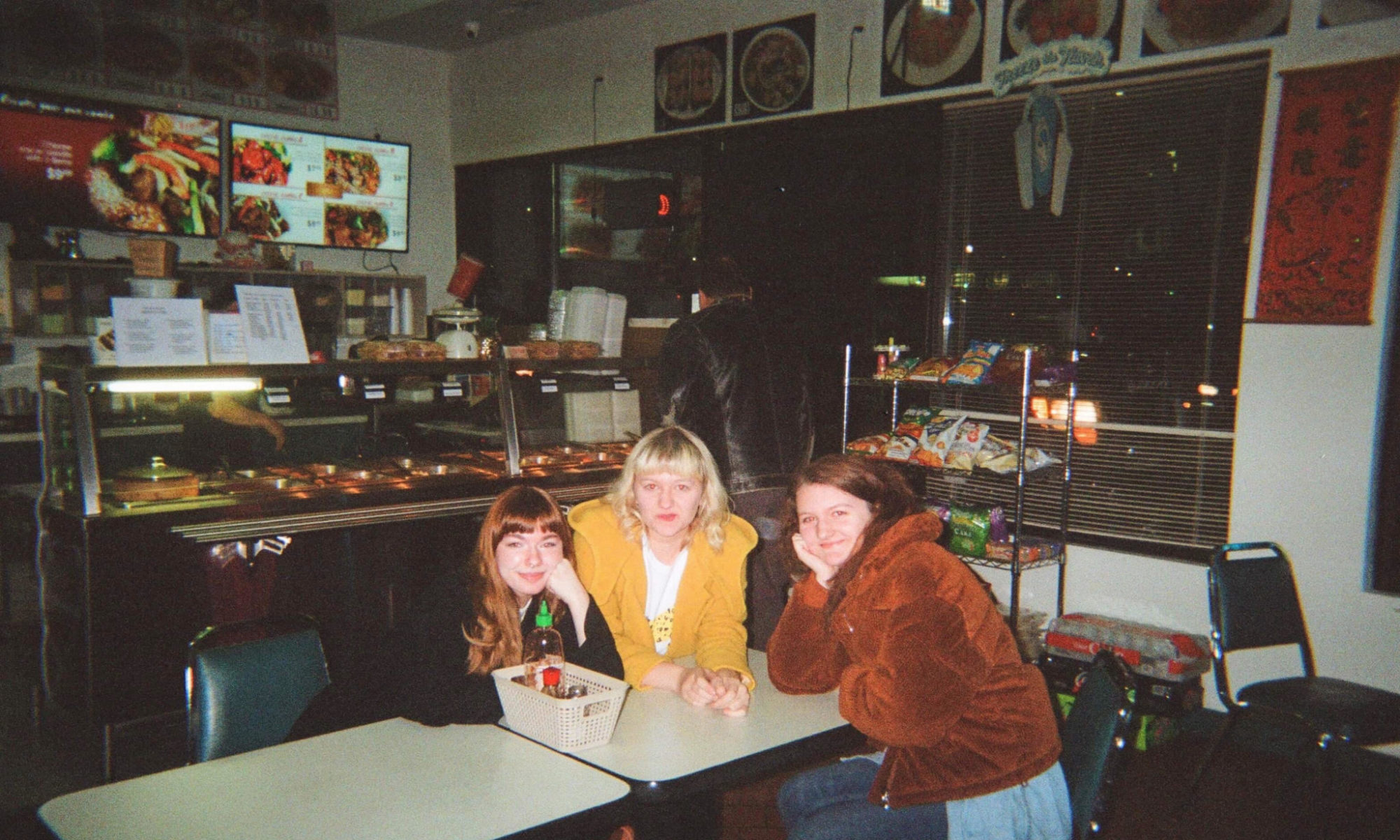
by Maggie A. Clark
Some readers may well be scratching their heads right about now.
“Jason Tait, huh? Yeah, I recognize him. The drummer from Red Fisher and that other band — you know, the one with that song about Gump Worsley! Patrick Michalishyn, though: now where have I seen that name before?”
Try “one page ago,” on account of the above “CKUWho?” profile. In the interest of full transparency, I should mention that he did ask me to review his split tape, and I obliged. So let it be known — if you ask nicely enough and I have a spare evening, I’ll just do whatever you say. I’m easygoing and I crave the approval of others! (And on that note: if you have an album you’d like me to review, shoot me an email at [email protected].)
I know I called G-384 a “split tape” a second ago — and, to be fair, Michalishyn told me the release would be accompanied by a limited cassette printing — but that’s really more of a naming convention. It’s certainly catchier than “split series-of-five-MP3s-in-a-zip-file.” It goes to show that the terminology we use to describe music hasn’t quite caught up to the digital means through which it is now often mediated. Description, almost by definition, lags the reality it is meant to capture. Must communication remain forever imprecise?
I don’t know! I don’t have time to think about that right now. I have a split tape to review! “NYE2024,” the first of Tait’s two contributions succeeded by Michalishyn’s three, kicks things off with a low hum punctuated by synthetic vocal notes that soon form an ostinato. A minute later, an electronic drum pattern enters the fray and is further supplemented with an icy arpeggio.
It’s all very Oneohtrix Point Never, sure, but I’d like to highlight a different point of reference. I was pleasantly reminded of the soaring, royalty-free synth tracks that Jon Bois deploys to great effect in his YouTube documentaries about real-life deaths caused by slipping on a banana peel or the history of the Seattle Mariners. (Some may say these topics are one in the same.) I feel like I’m about to watch Edgar Martínez rip a walk-off line drive into deep left field — or, to put it in terms to which the non-sportsheads can relate, it prompts a palpable sense of anticipation and forward momentum.
I could get into the skittering, staticky groove of “Cool Phosphene Trick,” but I want to skip right to the finale, “We’ll Get ’Em Next Time.” Dovetailing nicely with the opener, it too fades in with an ominous drone and approaches a nine-minute runtime. But here, the sluggish, woozy instrumentation is intercut with slowed-down audio of Aldous Huxley warning a BBC interviewer about the dangers of technological growth: one gets the sense that, as he put it, “man is being subjected to his own inventions, that he is now the victim of his own technology […] instead of being in control of it.”
In this, I hear echoes of Marx’s famous observation that people “do not make [history] under self-selected circumstances, but under circumstances existing already, given and transmitted from the past,” applied in this instance to the realm of gizmos and gadgets. It also evokes, to my analogy-addled mind, Louis Althusser’s claim that “the reproduction of the material conditions of production cannot be thought at the level of the firm, because it does not exist at the level of its real conditions. What happens at the level of the firm is an effect…” (my emphasis).
So too with individuals. What happens in our own lives is likewise an effect — not merely of technology, but of capital, infectious disease, acts of God, dumb luck. Our lives are governed by these powerful, mysterious, sinister forces, their reach extending far beyond any individual’s capacity for comprehension. How much control over our surroundings have we ever truly possessed? Michalishyn, via Huxley, is hitting at a question I ask myself nightly: were we put on this earth to suffer, to be swept beneath the tide of endless cataclysm? Are we born to die?
It’s an admittedly self-defeating thought pattern — one that can provoke an abject, demobilizing terror if left unchecked. Or rather, it would produce such dread, were it not for the goofiness of the wonky, manipulated delay attached to the messenger’s Oxbridge affect. Nonetheless, I must applaud Michalishyn for teeing me up perfectly to launch into my usual schtick of quoting some long-dead commie philosopher in the music zine I help edit. Thanks, bud! I owe you one.

